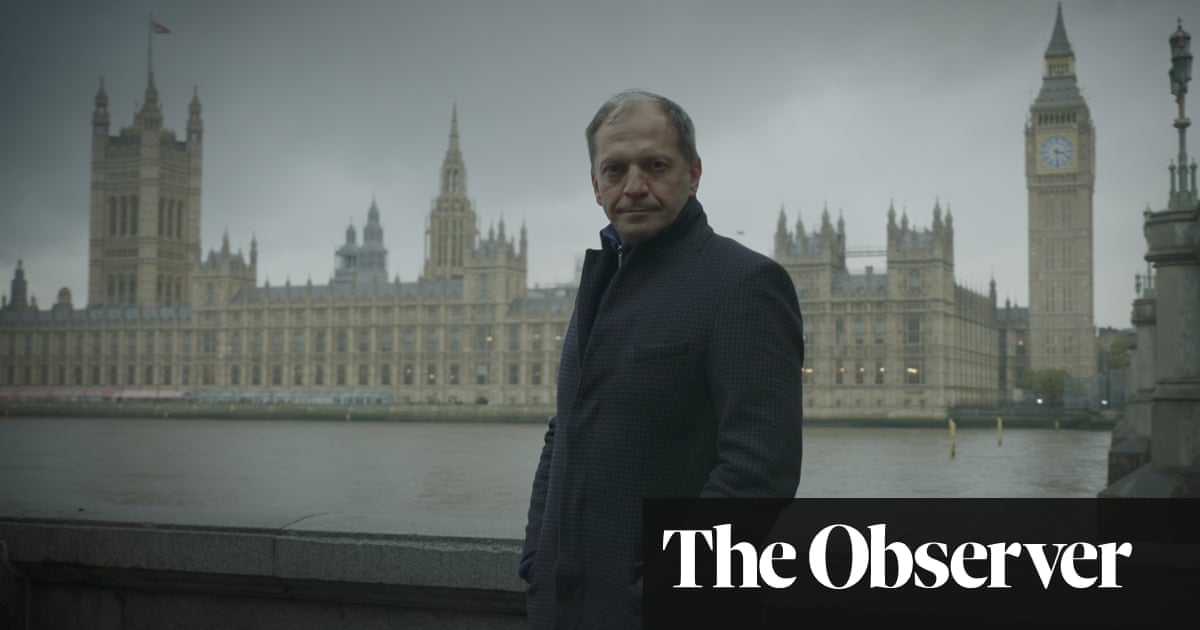
MI5 repeatedly refused to investigate evidence that an alleged Russian spy was attempting to cultivate influence with senior Conservative politicians and channel illegal Russian funds into the party, a Tory member has alleged in a new complaint lodged with the investigatory powers tribunal (IPT).
Sergei Cristo, a Conservative party activist and a former journalist with the BBC World Service, has lodged a complaint with the investigatory powers tribunal, filing the case after corresponding with the chair of parliament’s intelligence and security committee, Conservative MP Julian Lewis, who recommended he take the information to the authorities.
The committee’s Russia report claimed in 2020 that the security services had turned a blind eye to “credible evidence” of Russian interference and Cristo’s allegations offer potentially explosive new evidence that confirms its findings. Labour MP Ben Bradshaw said “allegations that the security services ignored evidence from a Conservative whistleblower exposing Russian infiltration at the highest levels of the party are truly shocking” and claimed the “Conservative party’s Russia problem” was an ongoing threat to Britain’s national security.
Cristo says that it was reading the Russia report that made him “suddenly aware that maybe the story I had was more significant than I thought” and, at Lewis’s suggestion, he wrote to Cressida Dick, then commissioner of the Met police.
He received a response from the counter-terrorism command (SO15) who said it was not a matter for the Met and advised him to take it to the IPT – which oversees the security services – which he has now done.
The allegations centre around the formation of a group called Conservative Friends of Russia in 2012, and its relationship with a Russian diplomat, Sergey Nalobin.
In August of that year, the Russian ambassador, Alexander Yakovenko, hosted a lavish launch party for the group in the gardens of his residence in Kensington with guests who included the former minister of culture, media and sport, John Whittingdale, and Boris Johnson’s now wife, Carrie Symonds. The Russian government also funded an all-expenses-paid trip to Moscow for a handpicked group of members including the future CEO of Vote Leave, Matthew Elliott.
Cristo says his suspicions about Nalobin, who was the political first secretary at the embassy, had been aroused two years earlier when he was approached by the diplomat and they met at the Carlton Club. When Nalobin learned that Cristo was a volunteer with the treasurers’ department of the Conservative campaign headquarters (CCHQ), he said he could “make introductions to Russian companies who would donate money to the Conservative party”.
“I knew straight away that what he was suggesting was illegal under UK law,” Cristo wrote in a letter to Lewis last year.
Alarmed by Nalobin’s efforts and the embassy’s sponsorship of the group, Cristo contacted Luke Harding at the Guardian and revealed Nalobin’s background and his disturbing relationship with the group. Harding and journalists at Russia’s The Insider found Nalobin had family connections to the FSB spy agency: his father, Nikolai, was a KGB general whose responsibilities included supervising Alexander Litvinenko, while his brother Viktor also worked for the FSB.
The resulting articles led to the resignation of the honorary president of Conservative Friends of Russia, Sir Malcolm Rifkind, and the renaming of the group.
What Cristo has never previously revealed is his abortive attempts to get the security services to act. He says that he whistleblew to the Guardian only after his attempts to get the authorities to act failed. In 2011, he tried repeatedly to raise the alarm with MI5. After an initial meeting with a junior agent went nowhere, he wrote to the director general of MI5, which resulted in a further meeting with two agents in a government building in Whitehall.
Cristo offered to meet Nalobin again and question him while wearing a hidden camera about how the Russian government intended to make the donations. That offer was also declined and he was advised to cease contact with Nalobin.
He also took his concerns to senior members of the party after a discussion with Britain’s most famous Russian defector, Oleg Gordievsky, a former KGB colonel. Gordievsky studied Nalobin’s biography and told Cristo that he believed he was a spy.
Conservative Friends of Russia was reinvented as the Westminster Russia Forum and only finally shut down altogether last year after Russia’s invasion of Ukraine. Meanwhile Nalobin continued to cultivate close relationships with MPs and Conservative party activists for a further three years until the Foreign Office declined to renew his visa.
In 2017, the Observer published an article that referred to Nalobin’s interest in the rivalry between David Cameron and Boris Johnson and his forced departure from the UK. It resulted in a series of furious emails from the Russian ambassador who sought to “correct” the article. The Observer declined to do so. Last year, Nalobin surfaced in Estonia when news broke that he had been expelled for espionage and had been “directly and actively engaged in undermining Estonia’s security”.
Russian president Vladimir Putin has been accused of deploying more intelligence agents in London than at the height of the Cold War.
“I think this is important because none of this ought to have happened,” Cristo said last week. “If MI5 had taken action, Conservative Friends of Russia would never have launched and Nalobin would not have been allowed to get close to so many key Conservative politicians and party members.”












